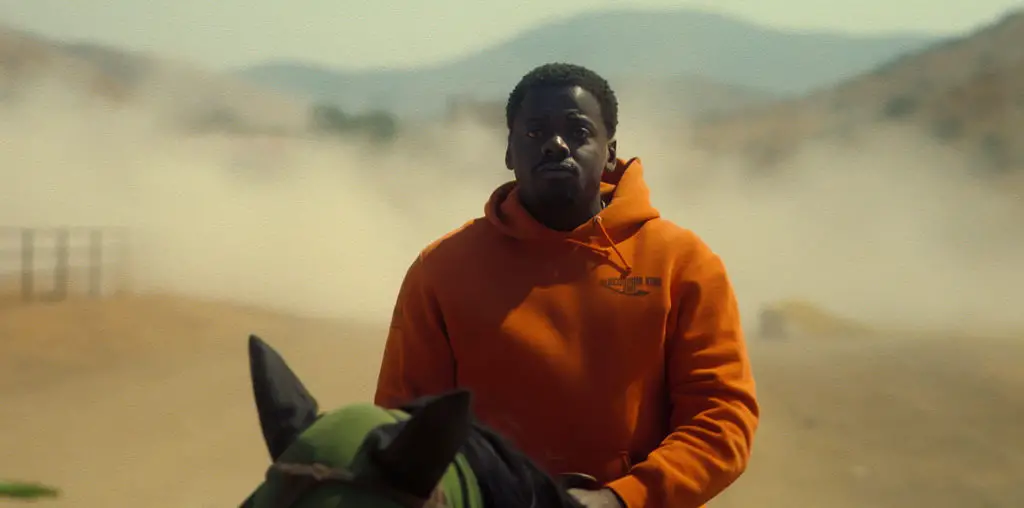
As the voice of the sea witch Ursula in “The Little Mermaid,” and as her vengeful sister Morgana in the lesser “The Little Mermaid II: Return to the Sea,” Pat Carroll had a vocal quality that suggested an aging singer in a cabaret who had seen it all yet still remained, because she knew things that could incriminate the owner of the cabaret. She could always get someone right where she wanted them, no matter how much they argued against the prospect.
Enter Sally Field now, as the voice of Marina Del Rey, in “The Little Mermaid: Ariel’s Beginning.” She’s the governess to Ariel (Jodi Benson once again) and her sisters, in this prequel that begins far enough back to feature King Triton (Jim Cummings) with brown hair and a brown beard, which flow right into each other. Marina leads her charges into stiffly-moving morning greetings to their father. He loves his daughters, but as you might expect, something very important is missing from his heart, and it’s explained right at the start.
Triton deeply loved his wife, Queen Athena (Lorelei Lee Butters), but pirates ransacking various items belonging to the mermaids caused Athena’s death, crushed by their ship while she was trying to retrieve a music shell Triton had given to her. Grieving over this tragedy, Triton decreed that music would be banned from the kingdom of Atlantica, because Athena loved music and—you can easily see where this is going—he doesn’t want to relive the pain. In the present, 10 years have passed of keeping it locked away.
So we have that track the film takes, with music driven underground and led spiritedly by Sebastian the crab (Samuel E. Wright), and another of Marina scheming for power. Think of the wrinkled, decrepit-looking Yzma from “The Emperor’s New Groove,” but white and with smoother skin, with a few of the same mannerisms, but far more garish in expressing her desires and wearing outfits that, surprisingly, were created by Carol Burnett’s favorite fashion designer, Bob Mackie.
But where Yzma wanted to rule the empire (also the desire of other villains like Jafar in “Aladdin” and Scar in “The Lion King”), Marina makes an unusual turn. She doesn’t want the crown, and I assume that’s because screenwriters Robert Reece and Evan Spiliotopoulous correctly remembered that Ursula went after it in the first film, if only briefly. She wants to be Triton’s chief of staff, replacing Sebastian, and sings about wanting to cause him to make “Just One Mistake,” in a number that’s more bewildering than fitting for a Disney villain. It wraps you around with its ever-changing colors, then moves so quickly in each second that you end up just staring glassy-eyed at the screen, knowing that she must have her big closing notes soon enough. And she does, riding down on a computer-animated hook that looks so out of place. It’s been forgotten here that computer animation has the capability to amaze an audience, but should blend with its environment. The beginning of “The Little Mermaid” remembered this, with Prince Eric’s ship sailing on semi-rough seas.
A villain can’t go without an assistant, at least not in this era of animated Disney films (in Walt Disney’s time, most villains worked alone), and so Marina has Benjamin (Jeff Bennett). I’m still trying to figure out what he is, but all you have to do is take Kronk from “The Emperor’s New Groove,” make him more reserved, and there’s Benjamin. He even does Marina’s nails, and tends to her electric eels. Despite hoping that “Ariel’s Beginning” would link itself to “The Little Mermaid” in order to remain remotely interesting, Ursula’s eels Flotsam and Jetsam are not part of Marina’s arsenal. Marina’s eels aren’t all that menacing anyway.
Field’s performance exhibits her excitement at being a Disney villain, albeit a minor one. Even the sequence where she goes after Ariel and Sebastian has a feeling of ho-hum inevitability rather than genuine danger. But Field plays her role as over-the-top as she possibly can, even to where at times, you can’t hear the usual Sally Field in her voice. However, when Eartha Kitt voiced Yzma, she had the advantage of being Eartha Kitt, while Field doesn’t have a whole lot to bite into since it feels like Marina is merely dropped into the film. But she tries just the same.
Benson adds more to the appeal of Ariel for older fans, and younger girls just learning about her, as well as generations not born yet who will undoubtedly become attached to her, ensuring the continued existence of the franchise. Samuel E. Wright still gives Sebastian energy in music that isn’t quite on the level of “Under the Sea” (and we really couldn’t reasonably expect that), but is satisfying.
The only disappointing performance among the voices is Jim Cummings as King Triton. Cummings is undeniably one of the tip-top best voice actors in Hollywood. He’s voiced Winnie the Pooh and Tigger for years, and can adapt his voice to fit any demands. One of the major highlights of his career is as the singing voice of Rasputin in 1997’s “Anastasia.” The speaking portion of the role was performed by Christopher Lloyd and when Cummings sang the part, he made it sound like Lloyd was actually singing.
One of the types of voices Cummings has is a broad-shouldered, stern, slightly menacing personality, which I suspect might be his actual speaking voice. You’ve probably heard it in “Shrek,” where he voiced the guard that tried to arrest Shrek (“You there, ogre!”), and as Cortez in “The Road to El Dorado.” Kenneth Mars, the original voice of Triton, did not return for whatever reason, and Cummings uses his trademark authoritative voice, though I wonder if a little less growl could have had him on the same level as Mars’ Triton.
With “Ariel’s Beginning” a straight-to-DVD release, it’s understandable that it cannot boast the budget currently being enjoyed by “The Princess and the Frog,” Disney’s official upcoming return to hand-drawn animation, being shepherded by John Musker and Ron Clements, who directed “The Little Mermaid” and triggered Disney’s renaissance in animation in 1989. But there’s many reasons “The Little Mermaid” is watched over and over, which Musker and Clements understood, among them, entertaining by way of a strong story, which “Ariel’s Beginning” does not possess.
Should Disney continue with other straight-to-DVD sequels or prequels like this one, “Bambi II,” which also was made to go straight to DVD, needs to be required viewing so future writers and directors of these features can understand what works and how to incorporate those elements into their films. A close relationship between characters, as with Bambi and his father, works. An insufferable Flounder does not.

